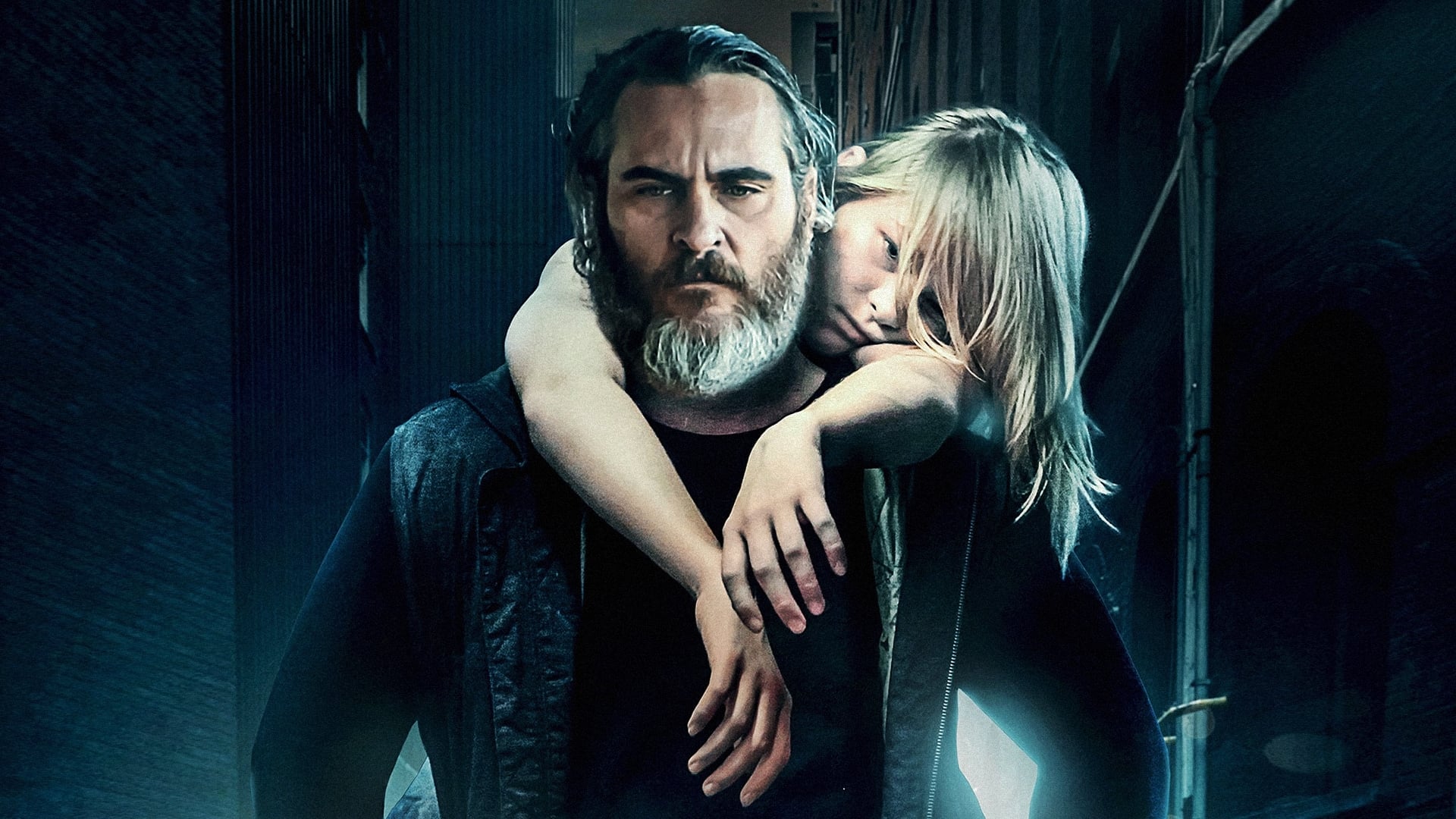
There are numerous ways to establish that someone enjoys the status of a critics’ darling, but few are as spectacular as when one’s film is greeted with a standing ovation at the most prestigious festival despite the “minor” detail that the film isn’t even finished. Lynne Ramsay, the Scottish director whose filmography is modest in number but who nonetheless enjoys exceptional acclaim, achieved precisely this at the 2017 Cannes Film Festival with her thriller-drama You Were Never Really Here, which would only appear in its final version several months later.
The film is based on the eponymous novel by Jonathan Ames, the writer and screenwriter renowned as the creator of the TV series Bored to Death. The protagonist is Joe (Joaquin Phoenix), a hulking and intimidating figure who earns a living by undertaking detective work, and sometimes “muscle” tasks, involving the search for missing persons on the streets of New York and beyond. Joe has acquired a reputation for brutality in criminal circles, but in reality, he is averse to violence, as it is the source of deep trauma—both from his childhood, when he was a victim of familial abuse, and from his experiences as a soldier witnessing conflict in the Middle East. The only thing keeping him tethered to reality is his elderly, half-senile mother (Judith Roberts), whom he cares for with genuine devotion. His employer, John McCleary (John Doman), hires him for what may be the most delicate case of his career. Ambitious state senator Albert Votto’s teenage daughter, Nina (Ekaterina Samsonova), has run away from home and disappeared amid his election campaign preparations, with the only clue being an SMS containing the address of a brothel specialising in underage prostitution. Joe locates it and, in his characteristically brutal yet efficient manner, succeeds in swiftly rescuing Nina. Before he can deliver her to her father, however, it emerges that both Nina and the brothel are part of a far more complex scheme orchestrated by far bigger and politically connected “fish” than the lone senator, who are prepared to exploit corrupt police and security services to eliminate Joe and everyone associated with him in a brutally straightforward manner, forcing Joe to fight for his very survival.
Among the heaps of praise received by You Were Never Really Here, frequent are those who hail the film as the “Taxi Driver of the 21st century.” Although similarities to Martin Scorsese’s classic are certainly noticeable (including scenes that can be interpreted as homages), viewers will perceive far more differences. These primarily concern what many eulogists have often cited—that although it contains nominal elements of “commercial” genres such as thrillers or action—the film is an “art house” piece, and in the “purest” sense at that. Ramsay appears to have strived to avoid any compromise with “mainstream” cinema, placing on screen only what would be applauded at festivals. The style is, to put it mildly, “hermetic,” demanding far greater patience and understanding from audiences regarding unconventional framing techniques and cinematic narrative. Events in the film are depicted exclusively from the perspective of the protagonist, whose mental instability becomes apparent very quickly, causing the main plot to constantly intertwine with flashbacks, hallucinations, and the protagonist’s fantasies. This thoroughly confuses viewers, and without Phoenix’s brilliant performance in the complex role of the tormented protagonist, even the most patient audiences would have given up on You Were Never Really Here. Ramsay occasionally crafts a strong sequence, most notably Joe’s raid on the brothel, where scenes of violence are depicted indirectly and in a quasi-documentary style using video cameras. More thorough comparisons to Taxi Driver, however, will undoubtedly be to Lynne Ramsay’s detriment.
Unlike Scorsese’s film, which firmly anchors the story of a tormented veteran turned vigilante on New York’s mean streets within the economic, cultural, and political context of the “leaden” 1970s, Ramsay seems to strive to ignore the external world—that is, everything beyond Joe’s mind. This film lacks Herrmann’s brilliant score, the memorable supporting roles of Peter Boyle or Harvey Keitel, and the Russian-American model Ekaterina Samsonova still has considerable work to do before anyone places her in the same category as Jodie Foster. It is highly unlikely that this film will inspire anyone to attempt an assassination of the US president, but if such a hyped film was meant to surpass Taxi Driver, Ramsay needed to offer something far more substantial.
RATING: 6/10 (++)
(Note: The text in the original Croatian version is available here.)
Blog in Croatian https://draxblog.com Blog in English https://draxreview.wordpress.com/ InLeo blog https://inleo.io/@drax.leo
LeoDex: https://leodex.io/?ref=drax Hiveonboard: https://hiveonboard.com?ref=drax InLeo: https://inleo.io/signup?referral=drax.leo Rising Star game: https://www.risingstargame.com?referrer=drax 1Inch: https://1inch.exchange/#/r/0x83823d8CCB74F828148258BB4457642124b1328e
BTC donations: 1EWxiMiP6iiG9rger3NuUSd6HByaxQWafG ETH donations: 0xB305F144323b99e6f8b1d66f5D7DE78B498C32A7 BCH donations: qpvxw0jax79lhmvlgcldkzpqanf03r9cjv8y6gtmk9